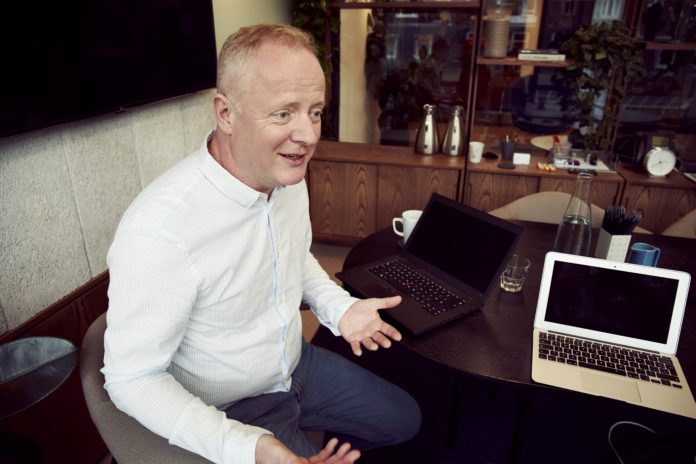JobStreet Malaysia announced the Laws of Attraction recruitment study on 21 April, incorporating data from more than 10,000 local candidates across over 25 industries. The study is especially timely for organisations seeking to build and retain teams that agilely combine skills and mindsets needed in the path toward post-COVID economic recovery.
The Laws of Attraction study not only offers insights at a Malaysia-specific level but also crystallised information in terms of specialisation, industries, age groups and job levels with an overview comparison for each finding.
For Malaysian organisations seeking to navigate their way forward after the lifting of Movement Control Order, these findings go hand in hand with the government stimulus package which is designed to help retain existing workforce and secure new talents toward rebuilding.
The study reveals the thinking driving four generations of jobseekers: Gen Z (aged 18-23), Gen Y (aged 24-34), Gen X (aged 35-54) and Baby Boomers (aged 55-65).
Salary and Compensation along with Work-life Balance are key motivations for all Malaysian talents except Gen Z. They prefer Personal Growth and Career Development as they are just starting to enter the workforce.
Gen Y focuses on Career Development in an organisation when it comes to choosing a job. This includes overseas training and promotion opportunity.
Meanwhile, Job Security drives Gen Y, X and Baby Boomers due to factors such as commitments or family. The majority of Malaysians in the workforce are currently from Gen X and Gen Y, which comprises 45% and 40% respectively.
The key drivers also differ according to industries. Salary and Compensation are high priorities for the Banking/ Finance and Consulting (IT) industries, whereas Work-life Balance is important for the Advertising and IT industry. On the other hand, talents in the Auto, Electronic & Manufacturing, as well as those in Oil & Gas, are driven more by Career Development.
With more Gen Z, Gen X, Gen Y and Baby Boomers working together, organisations today face unprecedented challenges in managing a multigenerational workforce. This is where the data can help organisations make the right recommendation and hire with precision. At the same time, organisations are also faced with issues of retaining talents during this challenging time due to cash flow and income issues.
As organisations move toward recovery, the working environment is faces transformation in response to uncertainties brought about by the pandemic.
Multigenerational workforce
The two major factors driving changes in the multigeneration workforce are demographic and technological transformations. In terms of demographics, each generation has different ways of communicating, different ways of working, and each with different expectations for employers. It is necessary to manage such an expectation in order to be able to work efficiently.
As underlined by Mr Gan Bock Herm, Country Manager of JobStreet Malaysia, “With four generations working together, organisations and recruiters need to pay attention to the subtleties of multi-generational cooperation so that the organisation can successfully maximize integration, collaboration and engagement toward business recovery as well as sustainability.”
Accelerating digitalisation
The COVID-19 pandemic has fast-tracked digital transformation in organisations. It has rapidly reshaped the way organisation and employees communicate and work as well as the deployment of technologies such as Big Data, Internet of Things (IoT), Artificial Intelligence, Machine Learning and Robotics to cope with the pandemic’s onset.
These changes have also impacted the skills that are required in the workforce as well as how recruitment processes are done. Almost overnight, organisations have not only had to speed up their digital transformation but more importantly, maintain a humanised recruitment process.
The Laws of Attraction study found that 34% of Gen Z find it acceptable to have interviews through video calls, as compared to Gen Y at 32% and Gen X at 30%. By contrast, just 19% of Baby Boomers found video interviews acceptable.
This further signifies the importance of organisations humanising the whole recruitment process. For example, a smart organisation would adapt to provide an immersive experience and making the session feel more like a two-way conversation. Talents, in turn, can get a real feel for the company values, culture or even team members as they would be “there in person”.
Work-life balance
This is the second most common factor across all generations, with the ability to work from home or remotely being a significant sub-driver. This has proven particularly important and relevant to the current situation as the Malaysian Government enforces social distancing and the Movement Control Order (MCO) to contain COVID-19. In short, working remotely is now a requirement, rather than an option.
Fortunately, the data suggests that Malaysians are receptive toward working from home or remotely, with 72% of Gen X preferring to work from home, closely followed by Gen Y at 71%. Gen Z and Baby Boomers are at 64 % and 66% respectively.
Explains Mr Gan, “With the current economic pressures brought about by the COVID-19, more than ever, employers need stronger recruitment and retention efforts. This is where data and local insights are important to understand what Malaysian organisations and workers need to form teams critical for their economic recovery after the pandemic.”














